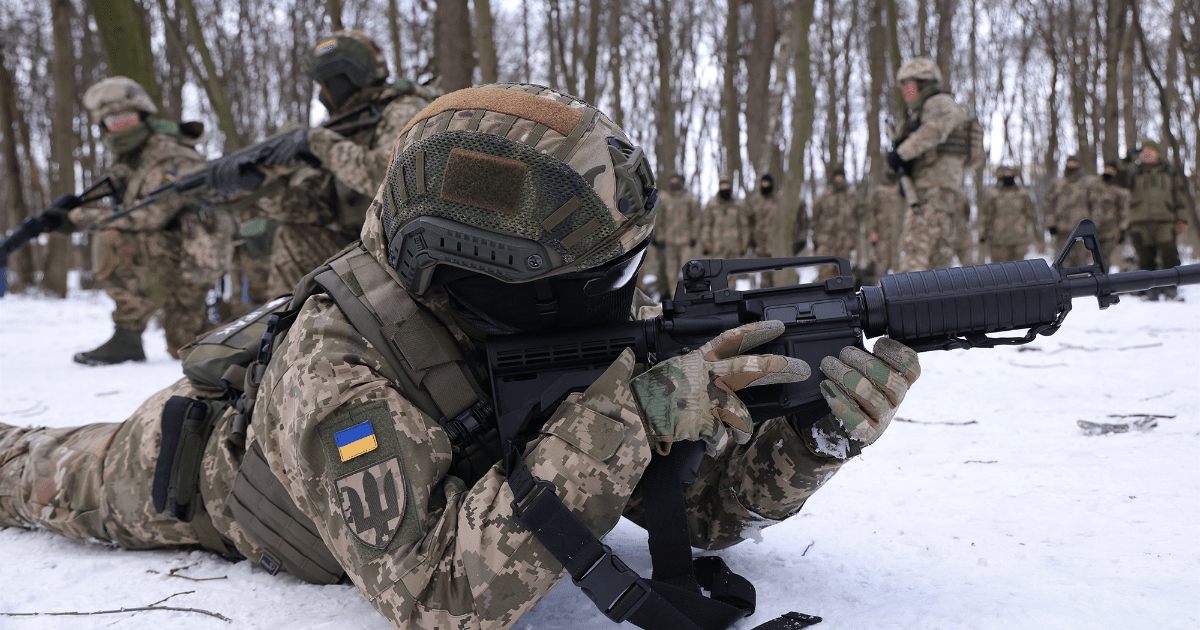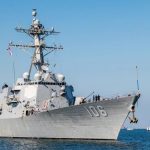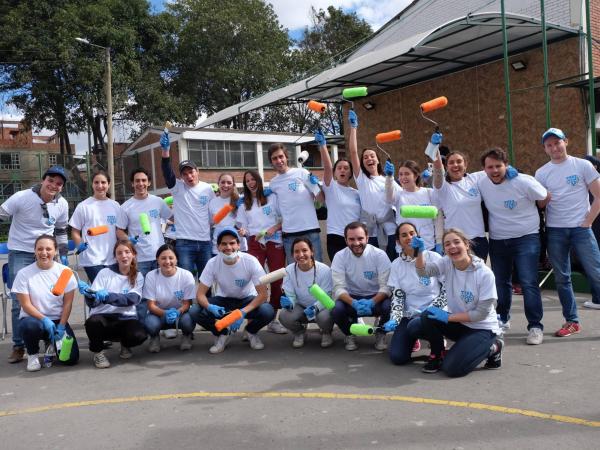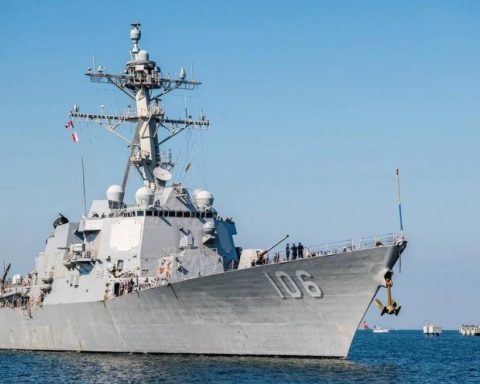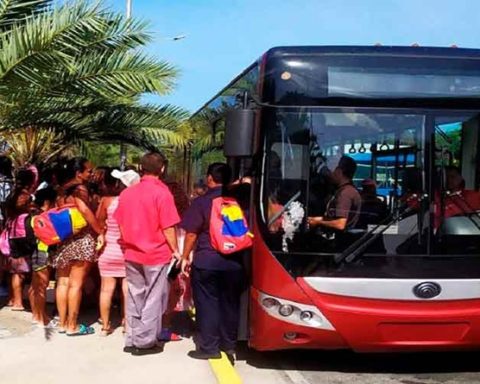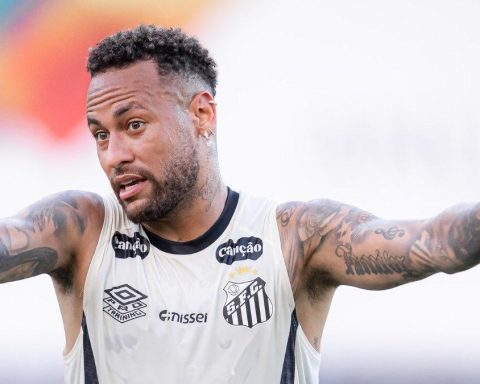Ukraine urged Western countries this Saturday to “firmness and vigilance” against Russia, hours after the president of U.S, Joe Biden, kept up the pressure on his Russian counterpart, Vladimir Putin, announcing a small deployment of troops in Eastern Europe.
Russia has concentrated tens of thousands of troops in front of Ukraine since the end of 2021, heightening fears of an invasion. Moscow denies any intention of invasion, but demands guarantees for its security, including a commitment that Ukraine, a former Soviet republic, will never be admitted as a member of the North Atlantic Treaty Organization (NATO).
United States and the NATO They refuse to accept these demands, but both the Westerners and Russia have so far left the negotiating path open.
Ukrainian Foreign Minister Dmytro Kuleba stressed in a telephone conversation with his French counterpart Jean-Yves Le Drian “the importance of remaining vigilant and firm in contacts with Russia,” according to a statement from his ministry.
However, he advocated a “political and diplomatic solution” to the crisis.
Hours before, Biden announced that it will mobilize “troops to Eastern Europe and NATO countries in the short term, not many.” The United States has already put 8,500 soldiers on alert to reinforce the NATO.
Secretary of Defense of U.S, Lloyd Austin, had estimated on Friday that with more than 100,000 soldiers concentrated on the border with Ukraine, Russia has enough forces for an invasion, but stressed that a conflict between Kiev and Moscow “is not inevitable.”
“There is still time and space for diplomacy,” he declared.
diplomatic gamble
British Prime Minister, Boris Johnson, who should talk to Putin in the coming days, he said he was “determined to speed up diplomatic efforts and strengthen deterrence to prevent bloodshed in Europe,” according to a Downing Street spokeswoman.
Polish Prime Minister Mateusz Morawiecki is expected to arrive in Kiev on Tuesday. “Poland supports Ukraine to prevent Russian aggression,” Polish government spokesman Piotr Muller said.
The Ukrainian President Volodymyr Zelensky He stressed that “the probability of attack exists”, but that “there is no escalation greater than what already existed” last year.
During a conversation with the French president Emmanuel Macron on Friday, Zelensky called for “multiplying meetings and negotiations (…) as long as there is a favorable climate for dialogue.”
Russia denies having invasion plans. Yet it is seen as threatened by NATO’s eastward expansion over the past 20 years and Western support for Ukraine.
For this reason, Moscow conditioned the de-escalation on the Transatlantic Alliance interrupting its expansionist policy and militarily withdrawing to the positions of 1997.
United States and the NATO rejected the main Russian demands on Wednesday.
“Need to de-escalate”
In a telephone conversation, Macron Y Putin They highlighted on Friday the “need for a de-escalation” and advocated continuing the “dialogue”.
“President Putin did not express any offensive intention,” stressed the French Presidency.
Both Europe and the United States have threatened to apply harsh sanctions against Russia taking action in Ukraine.
On the table would be the strategic gas pipeline North Stream 2, what CONECT Russia with Germany, or the closure of Russian access to dollar transactions.
On Friday, Washington and the European Union they affirmed in a joint statement that they are working on the supply of “additional volumes of natural gas” for Europe, in order to face any possible consequence of a “new Russian invasion of Ukraine”.
The United States demanded that the Security Council of the UN hold a meeting on Monday on the “clear threat” that Moscow would pose to “international peace and security”.
Moscow He had warned that if his requests were not heeded, he would respond forcefully, but he did not specify how.
On Friday night, Russian diplomacy announced that it was prohibiting the entry into the country of officials of the security forces and legislative and executive bodies of some EU countries who are “personally responsible for the spread of the anti-Russian policy”.
Leading Russian lawmakers have suggested that Russia recognize and arm pro-Russian separatists operating in eastern Ukraine. Moscow is considered the instigator of this conflict that began in 2014, after the Russian annexation of the crimean peninsula.
kg
